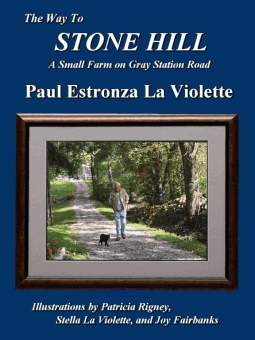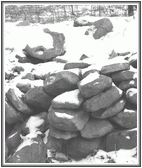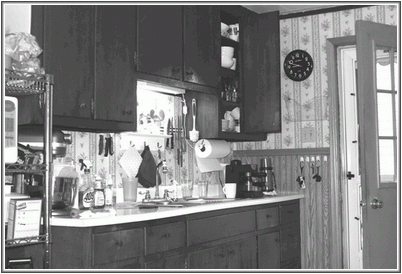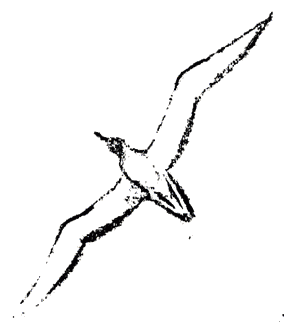The Way to Stone Hill


208 pp Hardback with Dust Jacket
PART 1 THE OLD FARMHOUSE
The Red Sofa … 18
The Road To Stone Hill Part I … 15
The Road To Stone Hill Part 2 … 33
Mississippi Dreaming … 40
Sunday Morning And The Balance Of Good And Evil … 43
The Moon, The Night, And The Big Black Pumpkin… 47
The Field, The Pond And The One Thousand Holes… 54
The Case Of The Magnetic Mooers … 63
Thoughts On A Pennsylvania Fall Day… 71
Friends And Strangers Part 1… 79
Friends And Strangers Part 2… 82
The Magic Of The Night … 85
When We Were In Need They Came … 88
Call This Number For Assistance … 90
Turn Right At The Pink House Cut In Two On The Corner… 97
The Second Purr… 100
Rocky Road And Our Own Mr. Groundhog… 103
Things That Go Bump In The Night … 108
Tootsie Rolls In An Imperfect World … 111
He Loves Me, He Loves Me Not … 114
Talk To Me, Tell Me What’s Happening … 117
Two Fall Mornings In Trailer Land Part 1 … 120
Two Fall Mornings In Trailer Land Part 2 … 123
PART 2 THE TIDE CHANGES
Les And The Christmas Feast … 128
We Start From Scratch … 133
The Sound Of The Day … 129
The House At Stone Hill … 143
Holly And The English Language … 150
All Saints Eve … 153
Please, See Clause 4 In MEMA Directive 1204… 157
We Make Changes To The Land… 167
Stella And The Get-Up Police… 173
The Secondest Great American Sandwich… 176
Two Astonishing Feats Of Magic… 180
Cargo Shorts… 183
Snowbound!!! … 189
The Great Hay Bale Round Up… 195
A Few Words In Parting … 201

AND THE BALANCE OF GOOD AND EVIL

It’s Sunday.
Stella and I are at breakfast in the kitchen of the old farmhouse. Holly is sleeping by my feet. It’s quiet. There is no sound but the tick of our battery-driven wall clock.
It is now almost two years since we first came to live in the old house, balancing the time in those two years between trips to Mississippi and back. We have done considerable cleaning of the house and grounds during those two years. There is a great deal more to do. But for now, things have improved considerably and we find ourselves pleasantly content here, comparatively comfortable despite the old house’s slanting floors and the dampness that comes from the basement.
As I mentioned, it is Sunday and, between Stella and me, the papers are spread on the table among the breakfast dishes. It’s a lengthy table, donated to us by a generous family in Blairsville. On some occasion since, we inserted the table’s two extensions and, finding we liked the increased room, we left the table that way. Now it holds among many things, the scattered pages of the Sunday newspaper, the large plate of Stella’s homemade nut bread slices, nicely topped with butter and honey, my coffee and Stella’s tea.
One of the things we did with the first small insurance check we received was to replace the ground floor windows (we boarded up the windows in the small rooms upstairs) with large double pane windows, five feet wide and four feet high. There are two of these large windows in the kitchen, one at the end of the table and the other is placed just behind Stella’s chair. This is the east side of the farmhouse and Stella sits bathed in the morning light.
It is a pleasant sight.
I’m on the opposite side of the table and I sit deeply involved in reading my favorite Sunday comic, “For Better or For Worse.” Taking a cue from the ticking clock, I reach for my coffee.
I take a brief sip. It’s bitter!
“Stella, the coffee’s too strong! I can’t drink it!”
Stella had obviously been enjoying her part of the newspaper and pulling it to one side, stares at me.
To be blunt, it’s not a good stare.
Now, Stella and I have been married for more than thirty years and I can tell by the noncommittal quality of her stare the strong emotions that are surging within her. Since Stella drinks tea and not coffee, she makes my coffee one cup at a time in a small, inexpensive espresso machine.
Now she is faced with a choice; should she tell me what to do with my coffee or should she get up and make me a fresh cup.
It’s the age old battle of good and evil that rages in every one of our human breasts throughout our lives and at this moment there is a tremulous tempest raging within hers.
During moments like these I am the consummate coward and I quickly drop behind the raised shield of the Sunday comics. There is silence for what to me seems an interminable moment. Then I hear a rustle indicating that she has gotten up; then more noise, steps, indicating she is going away from the table.
Perhaps because it is Sunday, or perhaps because the bright sun has lit the room around us, perhaps because we are comfortably warm and that there is promise that this will be a beautiful day, perhaps for all of these, the balance has tilted to the side of good; I feel I will get another cup of coffee.
Soon Stella returns and a fresh cup is placed in front of me. I start to reach for it.
“Wait, it’s hot!” she cautions. “Let me get you an ice cube.”
Now, there is a short fuss of getting the ice tray out of the refrigerator, then a cube of ice is dropped into the cup of steaming coffee. I smile at Stella and murmur my thanks and she smiles back and returns to her side of the table.
There is now silence but for the wall clocks tick, tick.
I lower the paper and reach for the new cup.
Now, I really don’t know what happened next.
They say that trauma victims have trouble recalling what happened that caused an accident until weeks and even months after the accident. This is true with me as to exactly what actually happened.
I must have hit the steaming hot coffee cup with something, perhaps the paper. Whatever caused the event to happen is unimportant, the cup is hit, it goes flying and its scalding contents go ahead of it in all directions, on me, on the table, on the Sunday papers and on the floor.
Stella, on the other side of the table sits untouched, staring in amazement at me and what has happened. Holly, who had been under the table until now, leaves the room, a black blur.
I scream in pain, run out of the room and taking my clothes off in the farmhouse’s small bathroom, wash the coffee off my face and hands with soap and water, and rub myself dry with a large towel. I find some vitamin E in the medicine cabinet. They are in soft gel pills and I break two and apply their contents to the worst burns. There is immediate relief.
Finally, still completely naked, I go to the bedroom, pull some dry clothes out of my dresser, put these on and return to the kitchen table, stopping on the way to get some old towels from the dirty clothes bin.
I throw out the soggy pages of the newspaper, wipe the length of the table, and, getting on my knees, start wiping the floor under the table.
I stop.
A pair of Stella’s shoes is under there with me, sitting to one side. I look at them. Some of the coffee has managed to get into them. How could that have happened? Using one of the smaller towels, I hurriedly wipe the shoes as clean as I can and then, having done all I could, put them carefully back in their original resting place and proceed to wipe the rest of the floor.
All this I find takes a bit of time; the coffee had spread unbelievable distances. Holly comes to the doorway and watches me. I’m a little angry at myself and wave a towel at him, a good scapegoat. He disappears.
Finally it’s all done, or at least as best as I can do. I get up, leave the room to put the towels in the dirty clothes hamper in the bathroom, rewash my hands and return to the kitchen.
There at my place at the table is a fresh cup of hot coffee.
I pick the cup up and sample it.
It is perfect. It even has a new cube of ice.
Across from me Stella sits, smiling. I smile back. It’s going to be a nice day in the old house after all.
I decide not to tell her about the shoes.


A couple, fleeing the devastation of a vicious storm, finds refuge on a small derelict farm in the foothills of southwestern Pennsylvania. Intending to stay on the sixteen acre farm only until such time as the their small coastal Mississippi town recovers from the storm, they find themselves working hard to bring it back to its original state as a working farm.
Paul La Violette and his wife, Stella, plus a large tomcat named Holly, face many problems which are told in the book in a series of short stories that are at times humorous and at other times somber. All of Paul’s years of experience as a marine scientist working in the ice-covered Arctic Ocean and the sweltering hot Mediterranean Sea are brought to bear as he and Stella cope with the abrupt change in venue from the laid back life of coastal Mississippi to the isolated farm with its short summers and cold, snow filled harsh winters.
The inherent beauty of the small farm, its pond and creek, the amazingly abundant wild life around them, and the rich wonders of the deep woods, in the end seduce them into building a comfortable home and making permanent their stay on the farm situated just off a small county road in southwestern Pennsylvania.
* * *
WHEN WE WERE IN NEED, THEY CAME
(The Volunteers)
When we were in need, they came.
Many came because of their faith; their faith said care and they cared.
Many came because they thought that their coming was only right.
Many came because they saw our need and that not to come was wrong.
Within three days of the storm, they came.
They sat amidst our misery and offered themselves.
When we were thirsty, they gave us cool water.
When we were hungry, they gave us warm food.
When they saw that our clothes were dirty, they gave us clean clothes.
When we were sick, they gave us medicine.
And if we needed more, they gave us more.
Our houses were covered with mud and smelled of filth.
Our houses lay crushed under the trunks and limbs of trees.
Our houses where swept away or lay in rubbled ruin.
They wash the walls and cleaned the filth.
They cut away the trunks and the limbs of the trees.
They cleared the cluttered rubble on the bare slabs
And when we cried at what was left, they held us.
When they came, they asked no questions.
They brought no printed forms,
They had no limits of their aid.
They had no limits of their time.
As long as we were in need, they came.
We, who are here, will remember
That when we were in need, they came.
We will tell our children that they came.
We will write in stone that they came.
And we will carry in our hearts forever
The remembrance,
That when we were in need, they came.
